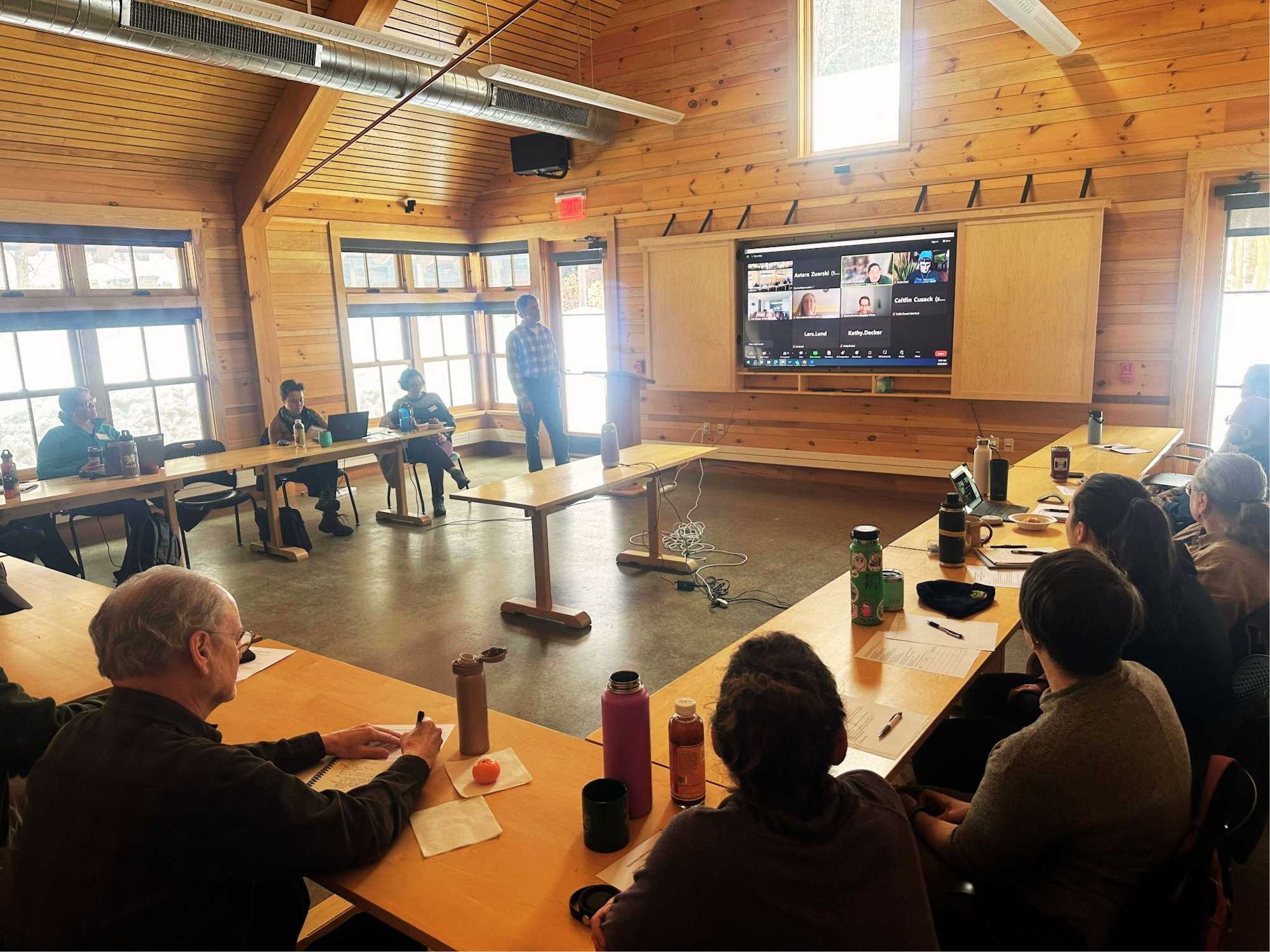Statewide CISMA Meeting Re-cap

Vermont’s natural landscapes are under increasing threat from invasive plant species which can disrupt our local ecosystems, degrade habitats, and outcompete with our native flora. Recognizing the severity of these threats, volunteers across the state of Vermont have formed localized non-profit groups called Cooperative Invasive Species Management Associations, or CISMAs. The five CISMAs in Vermont include the Southeast VT CISMA, Upper Connecticut River CISMA, Orleans County CISMA, Batten Kill CISMA, and the Upper White River Cooperative Weed Management Association (UWR CWMA), and are all made up of dedicated volunteers that work within the natural resource space across the state of Vermont with a focus on outreach, education, and invasive specie removal.
On Tuesday, March 26th, members of the five VT CISMAs, and invited VT State Departments and partners shared a space at the Marsh-Billings Forest Center, in Woodstock, in which the CISMA groups each presented on various invasive species management projects in their regions of Vermont, and their roles as CISMA groups. Of these groups, some specialized in specific invasive focused species projects, like Japanese knotweed, such as the Orleans Co. CISMA partners the Missisquoi River Basin Association’s Knockout Knotweed project, and an invasive species tracking and treatment program with Japanese knotweed emphasis by the Upper Connecticut CISMA group, and the UWR CWMA leading stewardship volunteer crews in removal of knotweed in the Upper White River watershed. While other VT CISMA groups, such as Batten Kill CISMA, are working on restoration of a land parcel along the Batten Kill River, and the Southeast VT CISMA’s Japanese Stiltgrass Early Detection and Rapid Response program.
During this meeting, other statewide partners and the CISMA groups engaged in robust discussions about upcoming invasive plant species issues and strategies to enhance communication and resources for battling these invasives. All of these groups' meetings have highlighted that Vermont’s invasive species are a problem across the entire state of Vermont, but there is hope in the fight for the cause.These groups have found success in community involvement in the detection of invasive species, and the power of community stewardship. Through enhanced communication, further public engagement, and collaborative action, these partnerships are aimed to make significant strides in protecting and improving Vermont’s ecosystems.
There are more opportunities to learn about how to form your own CISMA, what some of our VT CISMA’s have accomplished, and more during the upcoming webinar, Tackling Invasives Together: CISMAs in Vermont, hosted by VLT online on April 15th, from 7 - 8:00PM.
Written by Sarah Lunn, Missisquoi River Basin Association and Orleans County CISMA